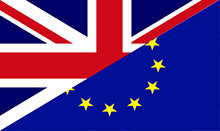Brexit and EPAs: Roundtable explores the implications for developing countries
 London, 13 July 2016/ RI/ ACP: The outcome of the 23rd June 2016 referendum has set the UK on a path to leave the European Union (EU) that will also see an end to its being a member of the EU’s Economic Partnership Agreements (EPAs) with several countries of Africa, the Caribbean and the Pacific.
London, 13 July 2016/ RI/ ACP: The outcome of the 23rd June 2016 referendum has set the UK on a path to leave the European Union (EU) that will also see an end to its being a member of the EU’s Economic Partnership Agreements (EPAs) with several countries of Africa, the Caribbean and the Pacific.
Brexit will have consequences for the UK, but its impact on these developing countries could also be far reaching. Precisely how and in what ways is however not yet well understood.
The Ramphal Institute is therefore organising a brainstorming session of leading experts to identify and better understand how this might affect Commonwealth developing countries that currently trade with the UK under an EPA.
The ACP Secretary General, Dr. Patrick Gomes will make opening remarks, to convey key issues that would affect the 79 member states of the ACP Group.
ACP-EU EPAs have been negotiated since 2002 to facilitate free trade between the EU and ACP regions. The Caribbean region has ratified and is implementing a full EPA, while negotiations have concluded for the West African region, East African Community, and Southern African Development Community. The Central African, Pacific and greater Eastern and Southern African regions are still addressing outstanding issues. Meanwhile, several states have signed interim individual agreements with the EU while the regional negotiations continue.
"The ACP Group’s relationship with UK lies in the fact that the latter is a member of the EU, and as long as it remains a member (at least until 2019) is therefore bound by all ACP-EU agreements – including the Cotonou Partnership Agreement, EPAs, Everything But Arms agreement and others. There are no bilateral agreements between the UK and ACP as a group," said Dr. Gomes.
"Once the UK’s exit from the EU is completed, will the UK honour the EPAs to which it has attached its signature, or will the UK launch a process of negotiation of bilateral trade arrangements with the countries which make up the ACP?"
He said the ACP Group must attempt to safeguard the interests of its member states – including market access, trade and investment, development financing.
Ultimately a formal submission by the Government under Article 50 of the Treaty of Lisbon will trigger talks that will define the terms of exit and the UK’s future relations with its European neighbours.
Particularly since the Single Market, the UK has not had an independently set foreign trade policy. But post Brexit, it will be able to fix its own customs duties and set other controls on trade, of course within the constraints of its WTO and other international obligations.
The resulting changes to the rules governing imports, for accessing the UK market and to commercial considerations; might well be extensive. Cumulatively, they might be positive or they could inadvertently adversely impact exports from Commonwealth countries like those of the Caribbean, Mauritius, Seychelles, Kenya, Fiji, Ghana, and others with longstanding trading links. Countries that in recent years have been trading with the UK under an EPA.
When the experts brought together by the Ramphal Institute at King’s College London, meet on Friday the 15th July 2016 14:00-17:00 UK time, they will make recommendations regarding further research, outreach and consultation needed to support policy making that contributes to trade development of the Commonwealth countries that will be affected.
Follow the discussion on YouTube: https://youtu.be/OSOlJjJMoeM.
Tweet comments and ask questions of the experts.
For further information please contact registry@ramphalinstitute.org.
